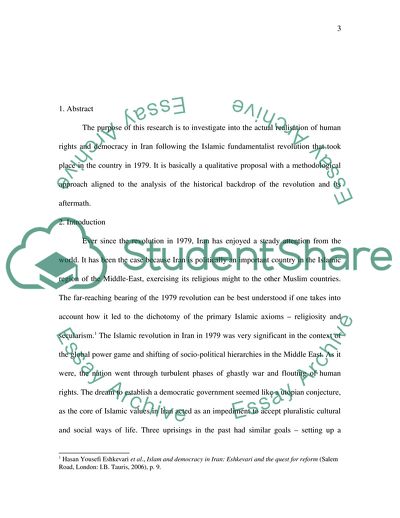Cite this document
(Human Rights and Democratization in Iran Research Proposal Example | Topics and Well Written Essays - 1500 words, n.d.)
Human Rights and Democratization in Iran Research Proposal Example | Topics and Well Written Essays - 1500 words. https://studentshare.org/history/1728439-human-rights-and-democratization-in-iran-after-revolution-1979
Human Rights and Democratization in Iran Research Proposal Example | Topics and Well Written Essays - 1500 words. https://studentshare.org/history/1728439-human-rights-and-democratization-in-iran-after-revolution-1979
(Human Rights and Democratization in Iran Research Proposal Example | Topics and Well Written Essays - 1500 Words)
Human Rights and Democratization in Iran Research Proposal Example | Topics and Well Written Essays - 1500 Words. https://studentshare.org/history/1728439-human-rights-and-democratization-in-iran-after-revolution-1979.
Human Rights and Democratization in Iran Research Proposal Example | Topics and Well Written Essays - 1500 Words. https://studentshare.org/history/1728439-human-rights-and-democratization-in-iran-after-revolution-1979.
“Human Rights and Democratization in Iran Research Proposal Example | Topics and Well Written Essays - 1500 Words”. https://studentshare.org/history/1728439-human-rights-and-democratization-in-iran-after-revolution-1979.


